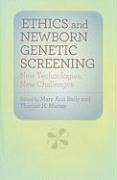
The Ethics of Genetic Engineering
Versandkostenfrei!
Versandfertig in 1-2 Wochen
213,99 €
inkl. MwSt.
Weitere Ausgaben:

PAYBACK Punkte
107 °P sammeln!
Human genetic engineering may soon be possible. The gathering debate about this prospect already threatens to become mired in irresolvable disagreement. After surveying the scientific and technological developments that have brought us to this pass, The Ethics of Genetic Engineering focuses on the ethical and policy debate, noting the deep divide that separates proponents and opponents. The book locates the source of this divide in differing framing assumptions: reductionist pluralist on one side, holist communitarian on the other. The book argues that we must bridge this divide, drawing on th...
Human genetic engineering may soon be possible. The gathering debate about this prospect already threatens to become mired in irresolvable disagreement. After surveying the scientific and technological developments that have brought us to this pass, The Ethics of Genetic Engineering focuses on the ethical and policy debate, noting the deep divide that separates proponents and opponents. The book locates the source of this divide in differing framing assumptions: reductionist pluralist on one side, holist communitarian on the other. The book argues that we must bridge this divide, drawing on the resources from both encampments, if we are to understand and cope with the distinctive problems posed by genetic engineering. These problems, termed "fractious problems," are novel, complex, ethically fraught, unavoidably of public concern, and unavoidably divisive. Berry examines three prominent ethical and political theories - utilitarianism, Kantianism, and virtue ethics - to consider their competency in bridging the divide and addressing these fractious problems. The book concludes that virtue ethics can best guide parental decision making and that a new policymaking approach sketched here, a "navigational approach," can best guide policymaking. These approaches enable us to gain a rich understanding of the problems posed and to craft resolutions adequate to their challenges.













